- What’s A Coding Assessment Platform?
- Benefits Of Using A Coding Assessment Platform
- How To Decide The Best Coding Assessment Platform?
- Coding Assessment Platform: 8 Must-Have Features
- The Importance Of User Interface and Experience
- Future Trends and Innovations
- Using A Coding Assessment Platform: Best Practices
- The Coding Assessment Platform For Unstoppable Talent
- Frequently Asked Questions (FAQs)
How To Decide The Best Coding Assessment Platform In Five Easy Steps

How to decide the best coding assessment platform is a question that plagues many recruiters when looking to hire tech talent. After all, selecting the right coding assessment platform is crucial for streamlining the hiring process and attracting top talent.
A good coding assessment platform can significantly impact technical hiring, ensuring that you evaluate developer candidates effectively and make informed decisions about their tech skills and testing abilities. When evaluating different types of assessment platforms, it's important to consider factors such as pricing, pros and cons, and candidate experience. By choosing a suitable platform, you can improve your overall hiring approach and ensure that you have a reliable tool to assess candidates' coding skills.
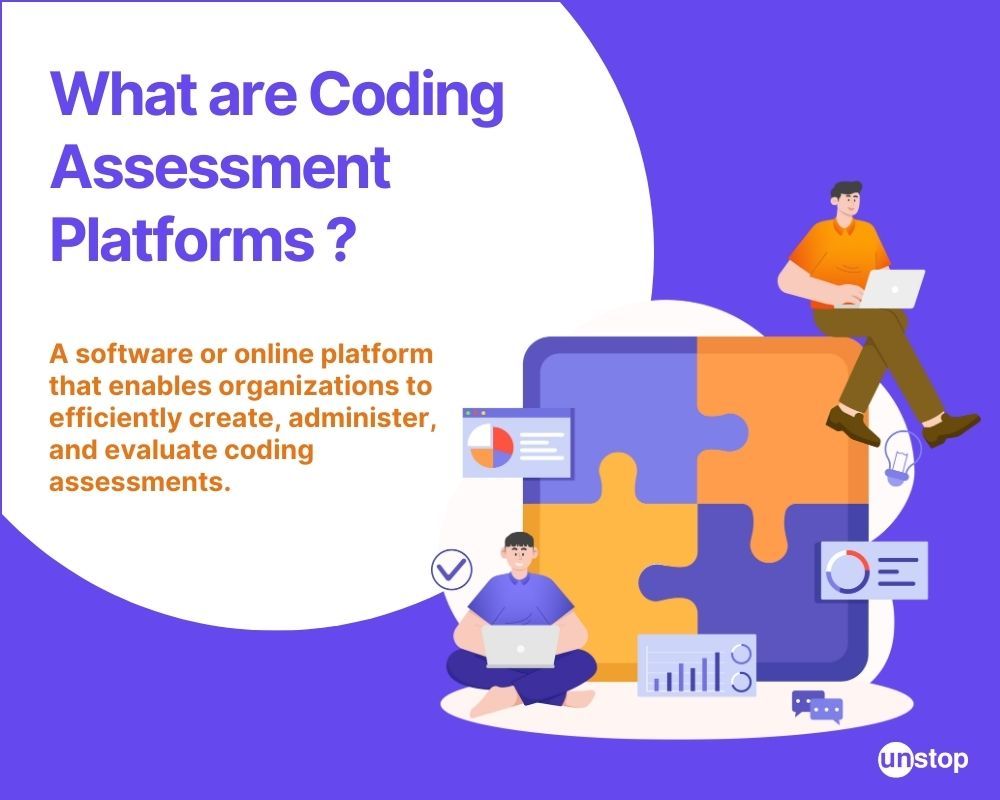
Before we find an answer on how to decide the best coding assessment platform, let’s first understand what they are and their benefits.
What’s a Coding Assessment Platform?
Coding assessments are exams or evaluations that measure a candidate's coding skills and abilities. These exams serve as screening tests and are conducted on a testing platform. These assessments are typically used by companies and organizations to assess a candidate's technical proficiency and suitability for a particular role or job. However, online assessments and exams can also be used by organizations or colleges to test applicants' skills and talent in various tests.
Coding assessments often involve solving coding challenges or problems using a specific programming language or framework. They can be in the form of online tests, coding exercises, or even live coding sessions.
A coding assessment platform is a software or online platform that facilitates the process of conducting coding assessments.
These platforms provide a range of features and tools that enable organizations to create, administer, and evaluate coding assessments efficiently. They often offer a library of coding challenges and problems, allowing organizations to select and customize assessments based on their specific requirements. Coding assessment platforms also provide automated grading and scoring capabilities, saving time and effort for the evaluators.
Benefits Of Using A Coding Assessment Platform
The reason recruiters hunt for answers on how to decide the best coding assessment platform is that such platforms enhance the efficiency and effectiveness of the assessment process, enabling organizations to identify top tech talent quickly and accurately. Here’s a look at the benefits offered:
-
Streamlined hiring process: Using a coding assessment platform helps organizations streamline their hiring process by efficiently evaluating tech talent.
-
Fair and consistent evaluation: Standardized coding assessments ensure a fair and consistent evaluation process, eliminating biases and ensuring equal opportunities for all candidates.
-
Time and resource-saving: Coding assessment platforms allow organizations to assess a large number of candidates simultaneously, saving time and resources in the hiring process.
-
Detailed performance reports: These platforms provide detailed performance reports and analytics, giving organizations valuable insights into candidates' abilities and helping them make data-driven decisions in their hiring process.
Let’s dive deeper into the factors that can help you answer the question of how to decide the best coding assessment platform for your hiring needs.
How To Decide The Best Coding Assessment Platform: 5 Key Considerations
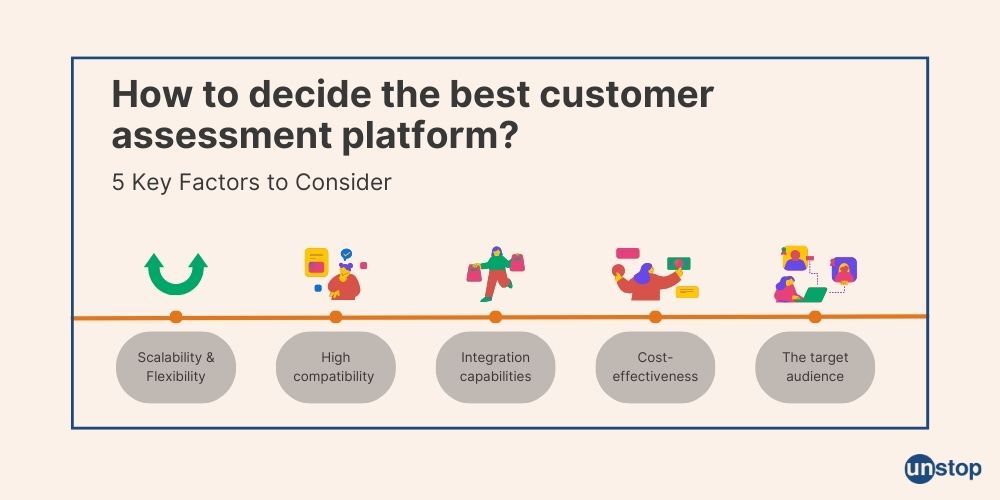
To choose the best coding assessment platform, there are several important factors that need to be considered. These factors will help ensure scalability, flexibility, compatibility, integration capabilities, and cost-effectiveness. Let's explore each of these factors in more detail.
Scalability and Flexibility
A good coding assessment platform should have the ability to accommodate future growth. It should be scalable enough to handle an increasing number of assessments as your company expands. It should offer flexibility in terms of customization options and adaptability to different assessment requirements.
Compatibility with Different Programming Languages and Technologies
It is crucial for a coding assessment platform to support a wide range of programming languages and technologies. This ensures that you can assess candidates proficiently regardless of their preferred language or technology stack. Look for platforms that offer comprehensive language support and provide tools for evaluating different skill sets.
Unstop offers a coding assessment platform that supports 75+ coding languages. Explore here.
Integration Capabilities with Existing HR Systems and Tools
Compatibility with your existing HR systems and tools is another essential factor to consider. It should seamlessly integrate with your applicant tracking system (ATS), learning management system (LMS), or any other relevant software you use in your hiring process. This integration streamlines workflows and allows for efficient candidate management.
Cost-Effectiveness in Terms of Pricing Plans and Value for Money
While cost is an important consideration, it shouldn't be the sole determining factor when choosing a coding assessment platform. Evaluate the pricing plans offered by different platforms and consider the value they provide in terms of features, support, security measures, reporting capabilities, and customer service. Opt for a platform that offers the most value for your money.
Understanding the Target Audience
To decide on the best coding assessment platform, it is crucial to understand your target audience. Before selecting a coding assessment platform, identify the expertise and technical abilities candidates need to succeed in the open positions. Consider their experience and knowledge in relevant programming languages, frameworks, or technologies. This will help you assess whether a platform adequately tests for these skills.
By considering these factors you can make an informed decision.
Coding Assessment Platform: 8 Must-Have Features
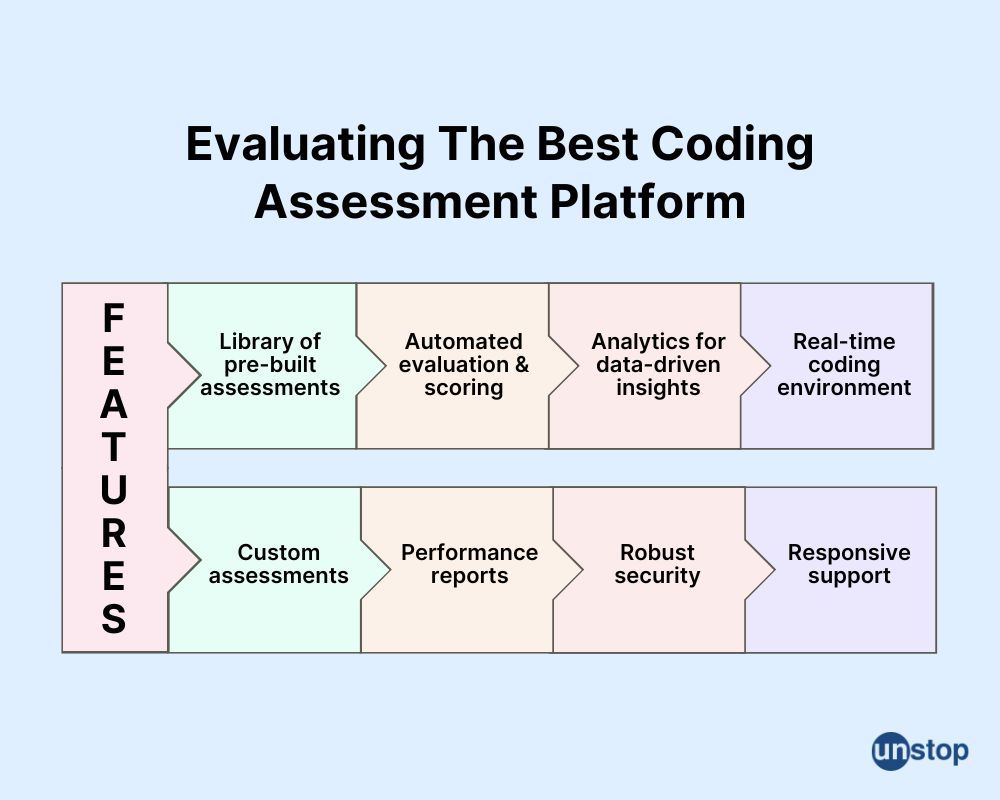
Still confused about how to decide the best coding assessment platform to hire tech talent? Well, here’s a list of important features that you can take into account when evaluating available platforms:
Comprehensive Library of Pre-built Assessments
A wide-ranging library of pre-built coding assessments that cater to various skill levels serves as valuable resources for evaluating candidates' technical proficiency. With a comprehensive library, recruiters and hiring managers can easily select the appropriate assessments based on the specific job requirements.
Automated Evaluation and Scoring System
Efficiency is key. A quality coding assessment platform should have an automated evaluation and scoring system in place. This streamlines the screening process by automatically grading candidates' code submissions, saving time and effort for recruiters and hiring teams. With this feature, employers can quickly identify high-potential candidates who meet the desired quality standards.
Analytics for Evaluation
To evaluate the effectiveness of assessments and identify areas for improvement, coding assessment platforms often offer analytics capabilities. These analytics provide data-driven insights into various aspects of the assessment process, including question difficulty levels, completion rates, and time taken per question. This information helps organizations refine their assessments and optimize them for better outcomes.
Real-time Coding Environment with Collaborative Features
Remote interviews and online recruiting are becoming increasingly common in today's digital landscape. Therefore, it is essential for a coding assessment platform to provide a real-time coding environment equipped with collaborative features. This enables interviewers to assess candidates' problem-solving skills in real time while also facilitating effective communication during remote interviews.
Custom Assessments that help in Aligning Difficulty Levels with Abilities
It is essential to align the difficulty level of the assessment platform with your target audience's abilities. If the assessments are too easy or too difficult compared to their skill level, they may not accurately reflect their capabilities. Look for platforms that offer customizable difficulty levels or adaptive testing features. This feature allows organizations to tailor their coding evaluations according to the specific skills and competencies required for a particular role or project.
Customization options also include incorporating company-specific questions or scenarios into the assessment process. This allows you to assess not only technical skills but also how well candidates understand your organization's unique challenges and goals.
Performance Reports
One of the key features of coding assessment platforms is their ability to provide detailed reports on candidate performance and progress. These reports offer valuable insights into a candidate's coding abilities, highlighting strengths and areas for improvement. Technical teams can leverage these reports to make informed decisions about hiring candidates based on their coding skills.
Robust Security
Coding assessment platforms should prioritize the security of sensitive candidate information and strive to prevent cheating by employing robust security measures such as encryption protocols and secure data storage to ensure that candidate data remains protected throughout the assessment process.
Responsive Customer Support
A reliable coding assessment platform should also have a responsive customer support team that can address any technical issues or inquiries promptly. Whether it's troubleshooting technical glitches or providing guidance on using specific features or functionalities, a helpful support team ensures that users have a smooth experience with the platform.
The Importance Of User Interface and Experience In Coding Assessment Tools
An intuitive user interface is crucial as it enhances the overall candidate experience during assessments. When evaluating different tools, it's important to consider the user interface and experience to ensure a smooth evaluation process.
Importance of an intuitive user interface
An intuitive user interface provides clear instructions and easy navigation within the tool. This is essential for candidates to understand the assessment requirements and complete the tasks effectively. They should be able to navigate through different sections of the assessment easily, without any ambiguity or guesswork. Having a straightforward layout helps candidates stay focused on solving coding challenges instead of getting lost in complex interfaces.
A well-designed interface reduces confusion and frustration, allowing candidates to focus on showcasing their coding skills rather than struggling with the tool itself.
Responsiveness across devices
In today's digital age, it's important for coding assessment tools to be responsive across different devices such as desktops, tablets, and mobile phones. This ensures that candidates can take assessments anytime, anywhere, using their preferred device. Responsive design allows for a seamless experience regardless of the screen size or device type.
Customizable branding options
The ability to customize the tool's branding allows companies to maintain consistency with their own image and brand identity. This creates a professional impression on prospective tech hires while aligning with the company's overall brand strategy.
Future Trends and Innovations in Coding Assessment Platforms
Embracing AI-powered technologies
Coding assessment platforms are evolving rapidly, thanks to the integration of AI-powered technologies. These advancements enable platforms to automatically evaluate code and detect any instances of plagiarism. By leveraging machine learning algorithms, these platforms can analyze code submissions quickly and accurately, saving valuable time for both candidates and assessors.
Integration with virtual reality (VR) or augmented reality (AR)
The future of coding assessments lies in the integration of virtual reality (VR) or augmented reality (AR). This innovative approach allows candidates to engage in immersive coding simulations that closely resemble real-world scenarios. By providing a hands-on experience, VR or AR can effectively assess a candidate's technical skills while adding an element of excitement to the assessment process.
Gamification to make assessments more engaging
To make coding assessments more engaging, many platforms are incorporating gamification elements into their assessment processes. By introducing challenges, rewards, and interactive interfaces, these platforms create a fun and competitive environment for candidates. This not only increases candidate engagement but also accurately measures their technical skills through various game-based activities.
Continuous improvement through machine learning algorithms
One significant trend in coding assessment platforms is the use of machine learning algorithms to adapt assessments based on candidate responses. These algorithms analyze the answers provided by candidates and dynamically adjust the difficulty level of subsequent questions accordingly. This ensures that each candidate receives a personalized assessment tailored to their skill level, providing accurate results.
Using A Coding Assessment Platform: Best Practices
Here are certain best practices that organizations can adopt when using coding assessment platforms:
-
Clearly define the hiring needs and requirements before selecting a coding assessment platform
-
Consider the scalability and flexibility of the platform to accommodate future growth and changes in hiring needs
-
Evaluate the platform’s features, such as compatibility with coding languages, question library, scoring and reporting tools, security measures, etc.
-
Consider the user experience and interface of the platform to ensure ease of use for both candidates and hiring managers
-
Consider the platform's reputation and customer reviews to ensure reliability and customer satisfaction
-
Regularly review and update the coding assessment platform to stay current with industry best practices and advancements.
The Coding Assessment Platform For Unstoppable Talent
Unstop’s online coding tests are an accurate and efficient tool for hiring top tech talent. Here’s why:
Features that enhance user experience: From AI-powered proctoring to skills assessment consultancy, auto-completion, error notification, enhanced privacy, etc., Unstop offers myriad features when administering online coding tests. All these features enhance the user experience for organizers and participants alike.
Comprehensive support: Unstop promotes 75+ programming languages and offers a library of 20k+ questions. This ensures that recruiters can organize their coding assessment and select from a wide range of questions - or even frame their own!
Automation: The auto-graded coding assessments and evaluations enable quicker analysis of results, with greater accuracy. This, combined with detailed performance reports, enables data-driven decisions without intensive manual effort.
Vast community: With an ever-growing community of 6.5 Mn+ students and young professionals, Unstop is the perfect bridge to connect recruiters with the right talent pool. Whether the goal is to build a talent pipeline or find the right candidate, Unstop provides ready access to a diverse candidate pool.
Interested in booking a demo of Unstop’s online coding assessment? Schedule a consultation here.
To conclude, the answer to how to decide the best coding assessment platform requires careful consideration of multiple factors. By analyzing your specific needs and comparing them with the features offered by a coding assessment platform, you can make an informed decision that will benefit your organization's hiring process. Remember to prioritize aspects such as customization options, user experience, integrations, security measures, and ongoing support when evaluating different platforms.
Unstop’s online assessment platform also offers a host of other assessment tools, designed to help you recruit the best talent. Explore more here.
Frequently Asked Questions (FAQs)
1. Can I integrate a coding assessment platform with my existing applicant tracking system?
Yes! Many coding assessment platforms offer seamless integration with popular applicant tracking systems (ATS). This integration ensures a smooth workflow by allowing you to manage candidate assessments directly within your ATS platform.
2. How customizable are coding assessment platforms?
The level of customization varies between different platforms. Some offer extensive customization options where you can tailor assessments according to your specific requirements. Others may have predefined templates that can be modified to some extent. It is important to evaluate each platform's customization capabilities based on your organization's unique needs.
3. Are coding assessment tools user-friendly for candidates?
Most modern coding assessment tools prioritize user experience for candidates by providing intuitive interfaces and clear instructions. These tools often include features like code editors with syntax highlighting and automatic code formatting to enhance the candidate's coding experience.
4. How are coding assessment platforms ensuring the security of assessments?
Top coding assessment platforms employ various security measures to protect your assessments and ensure fair evaluation. These may include secure coding environments, plagiarism detection algorithms, data encryption, and strict access controls to prevent unauthorized access to assessments.
5. What kind of support can I expect from coding assessment platform providers?
Coding assessment platform providers typically offer customer support through various channels such as email, live chat, or phone. They are available to assist you with any technical issues or answer questions related to their platform's functionality. Some providers may offer documentation, tutorials, and training resources to help you make the most out of their platform.
6. How to decide the best coding assessment platform?
When selecting a coding assessment platform, it is important to consider factors such as scalability, flexibility, customization, compatibility, integration, and cost-effectiveness. You should also take into account the level of support you can expect from the platform providers.
Suggested Reads:
- Ideathon Judging Criteria: Best Practices For Mentors And Judges
- What Is An Ideathon & How Does It Benefit Organizations?
- Role Of Soft Skills In Modern Hiring Can't Be Ignored. Here's Why
- Future of Remote Work Is Hybrid: A Look At The Latest Trends
- AI in Hiring: The Ultimate Guide for HR Professionals
I’m a reader first and a writer second, constantly diving into the world of content. If I’m not writing or reading, I like watching movies and dreaming of a life by the beach.
Login to continue reading
And access exclusive content, personalized recommendations, and career-boosting opportunities.
Subscribe
to our newsletter
Blogs you need to hog!
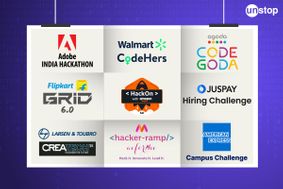
Organize Hackathons: The Ultimate Playbook With Past Case Studies

What is Campus Recruitment? How To Tap The Untapped Talent?

Lateral Hiring: A Complete Guide To The Process, Its Benefits, Challenges & Best Practices
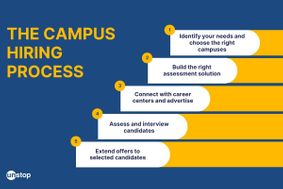










Comments
Add comment